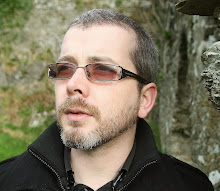
Q1. What are you writing at the minute?
I’m writing my sixth novel Blood Money. Well, I say writing, in reality I’m doing a lot of glaring at the computer and finding other things to do, other vital things, like cleaning out the garage and staring into space.
Q2. Can you give us an idea of Arlene Hunt’s typical up-to-the-armpits-in-ideas-and-time writing day?
I get up in the morning, check my mail, surf on line for a while, read the papers on line, glance over my notes, make tea, open Word and then, finally-depending on where I am in a book- I work flat out for about four hours or so. I have a daily word minimum and I’m quite disciplined about it. I won’t quit until it has been reached. Anything over it I consider a bonus. I edit my work for about an hour in the evening.
Q3. What do you do when you’re not writing?
If I don’t have my nose buried in a book, I’m pretty active. I like running, going to the gym, kick boxing, walking the dog, faffing about basically. A good friend of mine is a cinema buff, so we usually go to the cinema together twice a month to see the most appalling films.
Q4. Any advice for a greenhorn trying to break into the crime fiction scene?
Keep at it. Write what you want and what you enjoy. Develop a thick skin, but not so thick that you can’t take good advice if you’re lucky enough to be presented with some.
Q5. Which crime writers have impressed you this year?
Brian McGilloway, David Simon and James Lee Burke.
Q6. What are you reading right now?
The Lucifer Effect- How Good People Turn Evil and it’s by Phillip Zimbardo. I’ve read it before, but it’s such interesting book about human nature. It’s based on the Standford University experiment and a real eye opener to discover how quickly humans can switch off humanity when it suits them.
Q7. Plans for the future?
Professionally, much the same as I’m doing now I’d imagine. Writing, talking about writing and being ridiculously pleased to have a job I love so much. Personally, my husband and I have just bought a house so I envisage many Saturdays traipsing around DIY stores discussing dowels and extolling the virtues of quick drying varnish.
Q8. With regards to your writing career to date, would you do anything differently?
Nope, it’s been a pretty decent learning curve. The mistakes I’ve made are mine and I wouldn’t have learned Jack if I hadn’t made them.
Q9. Do you fancy sharing your worst writing experience?
When I was writing my first novel, Vicious Circle, I was sharing a computer with my husband and I somehow managed to lose the blasted file. I spent a number of hours pacing around saying’ Oh Jesus, oh Jesus oh Jesus’ while he searched for it. Eventually he found it and that’s when he introduced me to the concept of ‘back-up’. I’m not joking when I say that for those few hours I nearly had to be sedated.
Q10. Anything you want to say that I haven’t asked you about?
Yes, advice for people who work from home and own pets. Never build your office on the ground floor. Never have access to the garden from your office, at least not if you have cats. Cats are annoying creatures and expect you to immediately open doors. A cat will invariably need to come in and go out approximately one hundred and sixty times a day. If you own three of the buggers that becomes lot of opening and closing of doors. Bassets are excellent creatures and like to sleep for eight hour stretches at a time. The moral of the story is thus- get a basset.
Thank you, Arlene Hunt!













